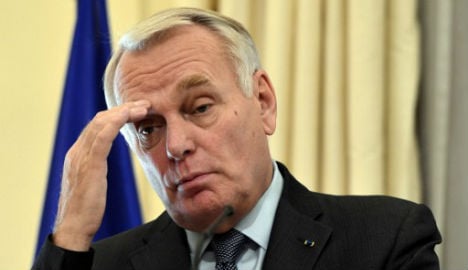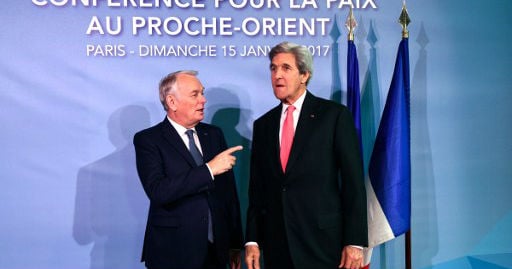European Union foreign policy chief Federica Mogherini summoned the ministers for dinner in Brussels after Republican Trump stormed to victory over Democrat Hillary Clinton on a platform which questioned America's
commitment to Europe.
But French Foreign Minister Jean-Marc Ayrault will be “absent for agenda reasons”, a French source told AFP, although his absence from a crucial meeting called by the EU's own foreign policy chief will also raise questions.
British Foreign Minister Boris Johnson will also not attend the meeting, which is seen in some quarters as unnecessarily casting doubt on the result of an election in the country that has been closely allied to Europe for decades.
“We do not see the need for an additional meeting on Sunday because the US election timetable is long established,” a British Foreign Office spokesman said, adding that Johnson would attend a scheduled full meeting of ministers on Monday.
“An act of democracy has taken place, there is a transition period and we will work with the current and future administrations to ensure the best outcomes for Britain.”
Britain will be seeking the incoming Trump administration's backing as it negotiates its exit from the EU following June's Brexit referendum vote.
Britain and France will instead be represented by their ambassadors to the EU.
Trump's victory has already been greeted coolly by a bloc shaken by Brexit and other crises, with European Commission chief Jean-Claude Juncker warning the billionaire president-elect he must get up to speed quickly on
transatlantic ties.
“Mr Trump, during his campaign, said that Belgium was a village somewhere in Europe,” Juncker said Friday. “I believe we'll have two years of wasted time while Mr Trump tours a world he doesn't know.”
Juncker also said that Trump had called NATO into question, which could have “harmful consequences” because it is the model of Europe's defence. Trump's lack of solid foreign policy priorities has however kept everyone
guessing.
One European diplomat said: “I have not had anyone teary on my shoulder — but everyone is saying 'what does it mean' and everyone is trying to interpret it.”
Trump has also sought to reach out to US allies since his election win, with phone calls to British Prime Minister Theresa May and French President Francois Hollande among others.
But in a sign of the concern that Trump's victory has caused in Europe, outgoing US President Barack Obama is himself set to meet Merkel, May and Hollande in the wake of Trump's victory.
Trump's coolness on Europe and accusations of sexism and racism during the campaign have caused nervousness throughout a bloc dealing with the migration crisis, a stalled economy and a resurgent Russia on its eastern border.
Donald Tusk, the EU president and former Polish premier, warned this week that the events of 2016 were a “warning sign for all who believe in liberal democracy”, and urged Europe to “finally get our act together”.
But Trump's win is also being seen by some in the European Union as a chance to push ahead with projects of its own in a bid to build unity in the wake of the shock of Brexit.
On Monday the foreign ministers will discuss plans to boost defence cooperation — a move that Britain had long blocked — including a controversial proposal for a European military headquarters.



 Please whitelist us to continue reading.
Please whitelist us to continue reading.